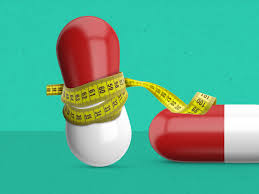As the covid-19 pandemic spreads around the world, countries continue to develop different ways to combat the virus and limit its spread.
As part of the measures taken to combat the virus, information on methods of diagnosis, infection and symptoms, the latest research on treatment and vaccine, common misinformation, methods of use of masks, warnings of the Turkish Ministry of Health and the World Health Organization have been updated.
** What is coronavirus?
Coronavirus is a large family of viruses that cause diseases for both humans and animals.
Coronavirus is known to infect the respiratory system in addition to other more serious diseases such as Middle East Respiratory Syndrome (MERS) and acute respiratory inflammatory syndrome (SARS).
Recently a new type of coronavirus has appeared and caused the deaths of many around the world, and it continues to this day.
** What is covid-19?
Covid-19 is the name of the infectious epidemic caused by the new coronavirus, the virus first appeared in December 2019 in Wuhan, China, and the disease was identified on January 13 following symptoms in a group of patients.
The epidemic first appeared in a seafood and animal market, then spread to the rest of Hubei province, to the provinces of China and then to the rest of the world.
** What are the symptoms of the disease?
The most common symptoms are fever, cough, shortness of breath and fatigue, but in advanced cases of the disease the patient may develop aches, stuffy nose, runny nose, sore throat and diarrhea.
80% of people with the virus recover without the need for special treatment, one in six with covid-19 is severe and has difficulty breathing, 20% of cases can be treated in hospital, and the disease affects the elderly over the age of 60 more than others.
The virus can lead to death for patients with chronic diseases such as pressure, heart, and diabetes, and those with high temperatures, coughs, and shortness of breath need medical support.
** How does the virus spread?
Covid-19 is transmitted by exposure to the spray of patients from coughing and sneezing and touching the mouth, nose and eyes, and by touching the surfaces contaminated by the spray carrying the virus.
** Is the virus transmitted through the air?
All scientific studies conducted so far show that covid-19 is transmitted through spray, not air.
** Do antibiotics affect disease prevention?
Antibiotics do not affect viruses but only bacteria, and because covid-19 is caused by a virus, antibiotics should not be used to prevent or treat it.
** Is there an effective vaccine or treatment to prevent the disease?
There is no specific vaccine or treatment that is effective against the virus yet, but supportive drugs are used depending on the patient’s condition, and the effectiveness of some drugs on the virus is being researched, but no resistant treatment has been discovered so far.
** Should I wear a muzzle to prevent the virus?
The medical mask (muzzle) should be worn in case of care for a covid-19 or a virus, and the muzzle should be used only once if it is intended for single use.
** How should I wear and take off the muzzle?
The muzzle should be worn by doctors, hospital workers and those with respiratory symptoms such as hyperthermia and cough.
Before touching the mask must clean hands with soap and water or massage a good developer contains alcohol, make sure that the quantum non-perforated, and be sure that the colored part is the outer part when wearing the gag.
The muzzle is placed on the face and set on the nose, then pulled down to cover the mouth and chin, after the end of use it is removed from the rubber part behind the ear, taking care not to touch it and put it in a box or a sealed package, and the hands should be disinfected after removing the garbage and
** Does the virus stick to external surfaces?
According to the data of primary scientific research can be MERS-CoV survival on external surfaces for a period ranging from several hours to several days, this period varies depending on the type of surface, temperature and humidity.
** How is covid-19 diagnosed?
Diagnosis is made by homemade detectors that show comprehensive results in 60 to 90 minutes, as well as rapid detectors in 15 minutes.
** Can the spread of the novel coronavirus be prevented by ordinary means?
The spread of coronavirus can be prevented by applying 14 rules, as follows:
1. Wash your hands with soap and water well while constantly massaging them for at least 20 seconds.
2. Cover the mouth and nose with a napkin while coughing or sneezing, and if you have a napkin cover the mouth and nose with the inner part of the elbow.
3. Avoid touching eyes, mouth and nose
4. Keep a three-step distance between you and people with cold and flu symptoms.
5. Cancel or postpone your trips abroad.
6. On your return from abroad spend the first fourteen days at home.
7. Make sure your places are well ventilated.
8. Clean surfaces used as door handles, power plugs, and sinks with water and detergent every day.
9. Don’t share your personal items like towels with others.
10. Wash your clothes with regular detergent at a temperature between 60-90 degrees Celsius.
11. Avoid direct contact such as handshakes or hugs.
12. Eat plenty of fluids, follow a balanced diet, and pay attention to the pattern of sleep daily in order to strengthen your immune system.
13. If you have cold and flu symptoms, do not come into contact with the elderly and those with chronic diseases, do not go out without wearing a medical mask (muzzle).
14. If you have symptoms of fever, cough and shortness of breath, wear a medical mask or muzzle, and head to a medical center near you.
** Common misinformation regarding coronavirus
Experts emphasize the importance of getting information about HIV prevention, from the right sources, and to stay away from common misinformation on the subject.
One of the most common misinformation is:
Error: covid-19 affects only the elderly.
Right: it can affect all adults and the likelihood of leading to severe illness increases with age, especially in those over 60.
Mortality from the epidemic among those under the age of 40 is 2 per thousand, while among those over the age of 80 it is 15 per cent.
Error: novel coronavirus is a virus produced in the laboratory.
Correct: it was not produced in laboratories and reached humans as a result of several genetic mutations that occurred to him.
The emergence of new viruses and their causes of epidemics in South-East Asia is expected in the medical community, owing to the high population density, large numbers of different animals and frequent direct contact between humans and animals.
Error: a vaccine for covid-19 has been developed but is not yet on the market.
Right: so far there is no vaccine that can be used against covid-19, and research continues to produce it.
The complex relationship between coronavirus and the human immune system has also not yet been fully revealed, making it difficult to predict how effective the vaccines will be produced.
Error: covid-19 can infect pets.
Right: studies have yet to prove the transmission of infection from pets to humans.
Error: the measures mentioned in a document that spread on social media as a “secret document”were taken.
Right: decisions in social networking sites entitled “secret document” is not correct, and all decisions and actions are communicated to the company through the responsible.
Error: fruits and vegetables should be peeled because the coronavirus sticks to their outer shell, avoid eating vegetables and fruits that cannot be peeled.
Correct: there is no proven information that eating vegetables and fruits with their shells increases the likelihood of covid-19 infection and can be eaten with their shells after washing in the right way.
Mistake: clothing should also be disinfected when returning home to prevent covid-19.
The right thing to do: disinfecting clothes to prevent coronavirus infection is neither right nor logical, and washing clothes in the usual form is enough.
Error: prevention of infection with the virus is not possible.
Following the rules of social isolation in people suspected of being infected or already infected is very important to prevent the spread of the disease and to protect those around the patient from infection.
Error: medical surgical masks and regular masks can be washed and reused again
Correct: the duration of use of surgical masks is from 3 to 4 hours and should be changed if dirty or wet, and when washed they become useless.
Error: should healthy people taking products enhance the strength of immune system intake of vitamins in order to raise the body’s ability to resist diseases.
The right thing to do: it is absolutely not necessary for healthy people to eat any additional products to strengthen immunity, it is enough only to pay attention to balanced nutrition, good sleep and exercise to strengthen the immune system, and only those who are deficient in certain vitamins have to take additional minerals and vitamins in the form of supplements or medicines.



